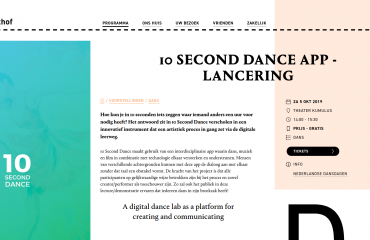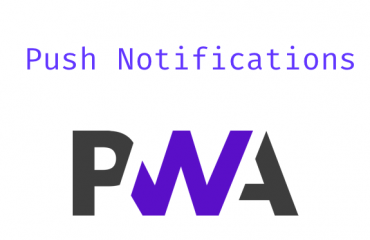What is low-code?
When developing a (web) application you normally need a software developer. This developer needs knowledge of different programming languages, usually a backend language (PHP, Python, NodeJS) and a frontend language (HTML, JavaScript, ReactJS). Complicated code language that someone who ultimately uses or manages the app often has little knowledge of. A small adjustment in your application, therefore, takes more time than you think; report the desired changes to the developer, have them implemented, check and have it put online.
The solution for this is low-code platforms. With the low-code editor, it is possible to make adjustments yourself without programmer on the basis of existing templates (app recipes). These recipes are written in a language (YAML) that is easy to read and use with some practice. Combine the existing in your application building blocks or start with a fully working example application such as the observation app that you can adjust yourself afterward. Adapting existing apps that you can take as a basis is a lot easier than coming up from scratch on your own.

Advantages of low-code platforms
Companies often cannot keep up with the ever-accelerating digital transformation. Soon, systems that have recently been built are already being overtaken by renewed principles and new frameworks. There are more and more wishes for complex applications that require a lot of manpower and the associated high workload for developers – which everyone is looking for and cannot find. To solve this problem, companies are looking for an alternative in (external) developers or IT consultancy companies.
There are high costs associated with both building and maintenance of these solutions. Also often on not always favorable conditions. Contracts that are concluded with a software development company are often cleverly put together. For example, do you acquire ownership of the code supplied? Or are you connected to this supplier through vendor lock-in?
More municipalities have shown an interest in the open source low-code platform of OpenApps.
Differences between the low-code platforms
Prices low-code and no-code platforms
One low-code platform is not the other. Where are the differences?
Well-known parties in this corner include Mendix and Betty Blocks. They are known for their low-code and no-code platform. You can of course make great apps with it, that’s how sporty we are to admit that. However, there are major differences.
Developing an application in low code speeds up the innovation of your application. But what is it ultimately worth? Betty blocks requires a monthly fee of € 1000 per application. This includes cloud storage. Mendix competes with a subscription per user of an application. An application with 10 users will cost € 370 per month. (the prices were compared in July 2019).
Prices of Appsemble SAAS are far below that. Partly because this year we also offer fewer building blocks compared. However, these are all temporary restrictions. What matters is that you do not create dependence on platform suppliers for yourself. Appsemble is open source. The continuity of your app will never be compromised.
Not only vendor lock-in and lower costs are advantageous. The fact that open source is always expandable by Appsemble but also by other parties also ensures that you can not only use the blocks that the supplier offers, but you can use and link your own APIs and datasets much more easily. Customization is always possible (to be carried out by Appsemble itself, but also any other supplier), you are never limited in the possibilities.
Affordable solution: low-code platform as open source
The prices for a low-code platform as a subscription are still too expensive for small companies and smaller municipalities. When your subscription ends, your application that you have invested money and time into immediately becomes unusable.
This is different when using an open source low-code platform. Open source means open source, you get free access to the source material. Appsemble offers a low-code platform as open source. You can take care of the hosting of your app yourself. If this does not work or you prefer to outsource it, it is possible to request a hosting from Appsemble. Just as easy and you can decide to do the hosting yourself at any time.
Do you want more information about Appsemble and OpenApps? Then sign up for the newsletter. Also view the FAQ page for interesting information.





